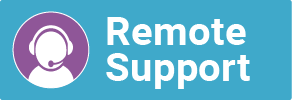Introduction
Here you will find guidance on the financial controls for the operation of supervised after school study where it is organised within the school’s existing administrative structure.
There are several models by which supervised study may be managed internally:
- In some cases, supervised study is coordinated by a teacher under the Post of Responsibility structure. While this can be an effective arrangement, it may place additional demands on the school’s administrative staff and reduce flexibility within the school’s middle management structure. The board of management, in consultation with staff, must assess the school’s strategic priorities to determine whether this arrangement is appropriate.
- Alternatively, supervised study may be organised by an individual or group of individuals—usually teachers—on an agreed paid basis. Under this model, the income received from participating students must be sufficient to cover the cost of paying the organiser(s) and supervisors.
- In other instances, supervised study is managed directly through the existing school administration, without a dedicated post of responsibility. While feasible, this approach may place a considerable burden on the Principal, Deputy Principal, and school administrative staff.


